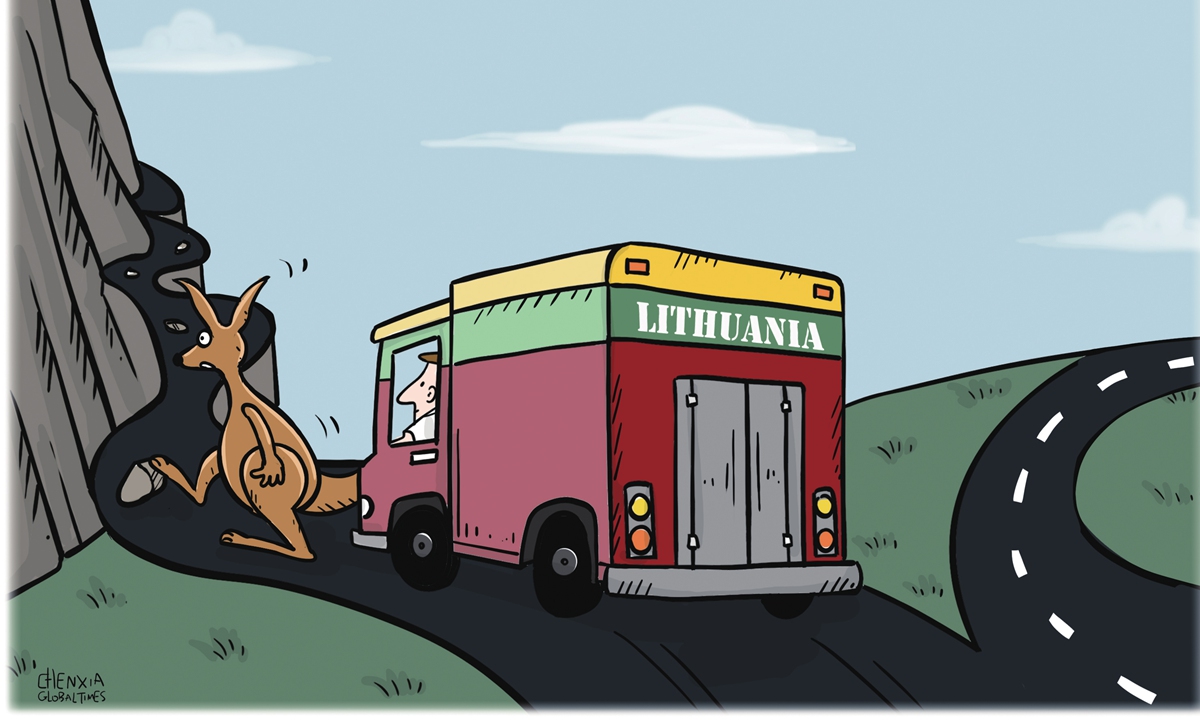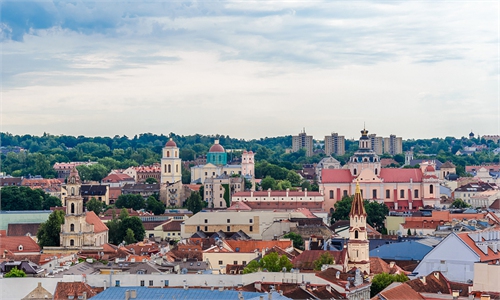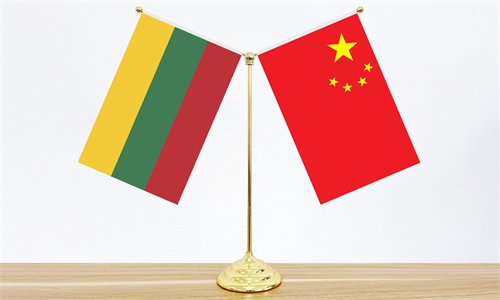
Illustration: Chen Xia/GT
Lithuania's Foreign Minister Gabrielius Landsbergis started his three-day visit to Australia on Tuesday. Shortly before his trip, he told Australia's Financial Review that China's "coercion and trade sanctions" will be at top of the agenda. "It will be very good to exchange notes about how we dealt with the situation, what did we learn, how to come out of it stronger, how can we help each other," Landsbergis said.
But what experience can Australia share with Lithuania? Could it be how to push itself into the fire? What Landsbergis said about "exchange" is no more than diplomatic rhetoric for propaganda purposes. The tiny Baltic country is actually preparing a way out while hoping to kill two birds with one stone. Vilnius has a tiger by the tail thanks to its policies toward the Chinese mainland and the island of Taiwan. It is facing political pressure domestically; meanwhile, it cannot reap enough support internationally.
Australia is in a similar position. It has been playing the role of an anti-China vanguard on the international stage. From Canberra's perspective, it wishes Vilnius to maintain a similar stance in order to fabricate a scenario where the anti-China campaign works well. What we have now is two countries using each other to keep themselves warm and trying to deceive the international community. What Lithuania can learn from Australia will be no more than hanging on and being tough. Hence, it will eventually turn out to be a joke when the two countries exchange what they have learned.
As well as a gesture, Landsbergis's visit to Australia is more likely an attempt to get Lithuania more space to maneuver. Since Vilnius went downhill with its China policy, it has maintained a tough image. Even before Landsbergis' visit to Australia, he deliberately emphasized that the Lithuanian government "is not about to" change the name of Taiwan's "representative office" in the country. This is not hard to understand: Diplomacy is a matter of national pride, so the Lithuanian government is reluctant to slap itself in the face.
But there might be some more flexibility after an exchange with Australia, which is similarly tough on China. If Vilnius softens or changes its stance on China, it would indicate a conclusion drawn after talks in Canberra. And if Lithuania continues on its current path toward darkness, it may have also taken a cue from Australia.
Lithuania's foreign ministry said in a press release on Friday that Landsbergis' visit was aimed at opening up "new opportunities for Lithuanian exporters in advanced and stable markets in Asia and Oceania" as part of "Lithuania's strategic goal of diversifying its supply chains," according to The Baltic Times. This is a beautiful excuse. After all, it would show its narrow-mindedness if Vilnius said it is purely focused on learning the anti-China strategy from Canberra.
Given the impacted trade with China, it would be good news for Lithuania if it could genuinely open up the Australia market. But this doesn't appear easy. The two countries with similar industry structures are not mutually complementary. Besides, they already compete over some consumer and agricultural products. But it cannot be ruled out that they possibly reach some deal to show a gesture of cooperation against the so-called coercion of China - they can thus achieve more political propaganda goals. However, if Lithuania aims to solve its economic problems by relying on Australia, its calculations will not pay off.
A Chinese saying goes, "The baby who cries loud will be fed." Lithuania is indeed crying fiercely, but it is not likely to get what it expects in the end. Lithuania's products themselves are not irreplaceable in the market, and even a big market like China is not infinite. Hence, if Lithuania loses its market share in China, it won't be easy to regain it elsewhere.
The article is compiled by Global Times reporter Xu Hailin based on an interview with Wang Shiming, professor with School of Advanced International and Area Studies of East China Normal University.opinion@globaltimes.com.cn


